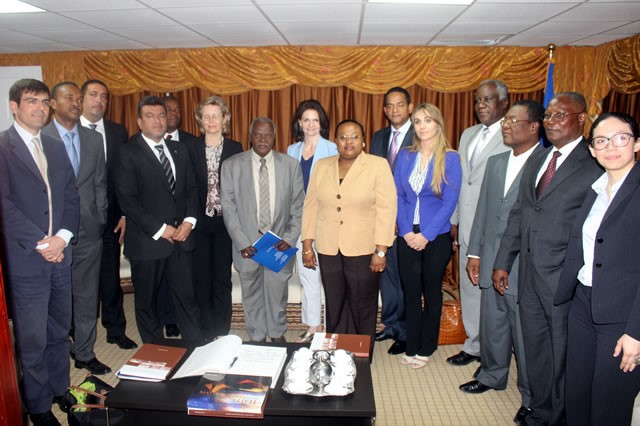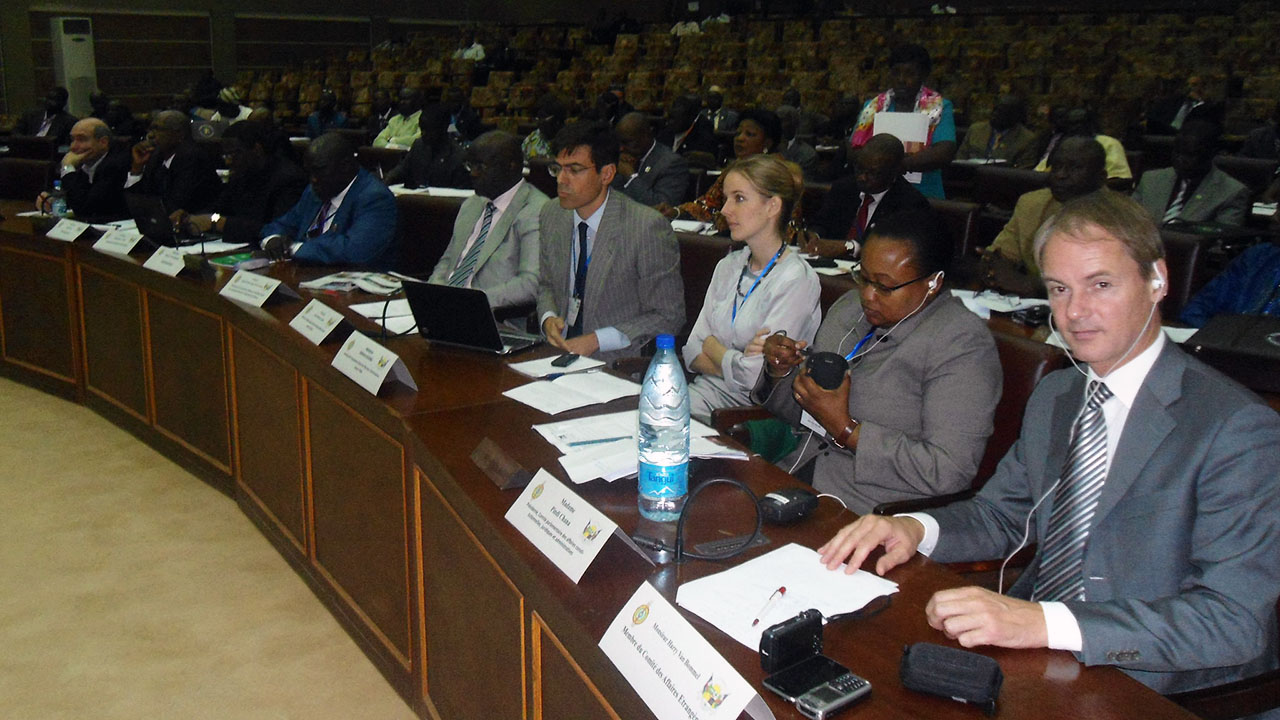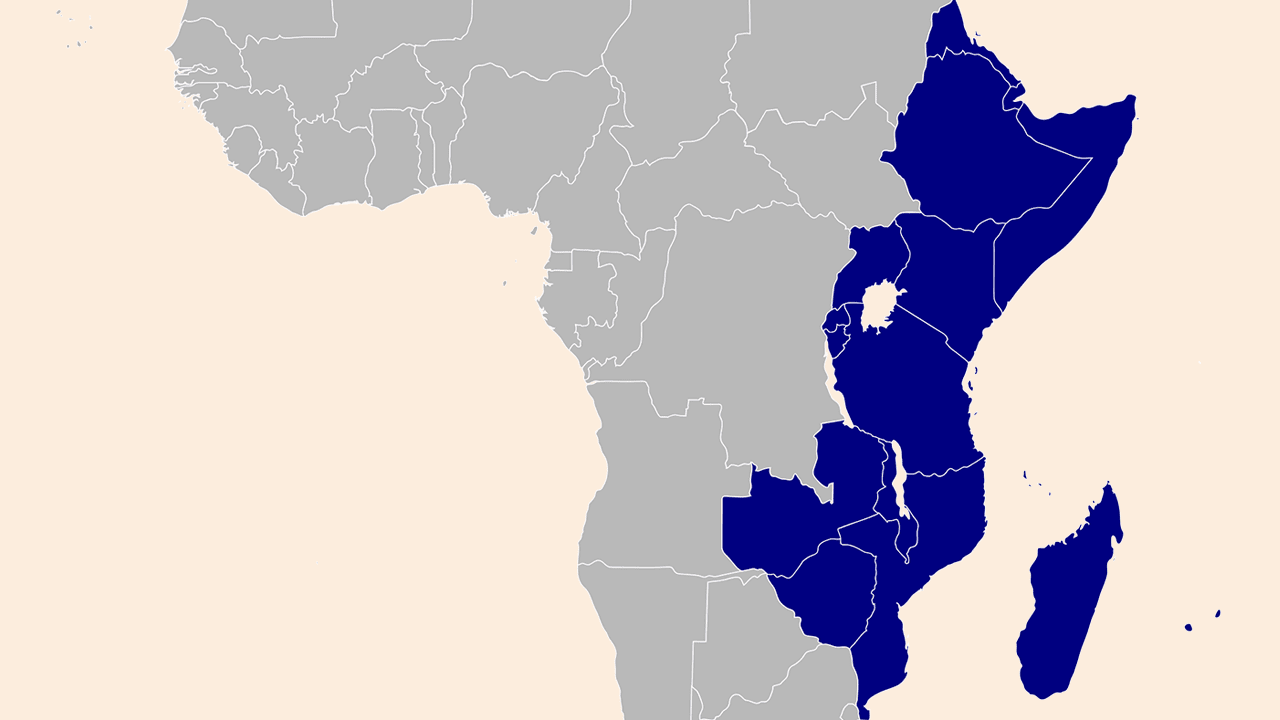PGA has worked with Parliamentarians from Tanzania in promoting the fight against impunity over the last 15 years. The United Republic of Tanzania deposited its instrument of ratification of the Rome Statute on 20 August 2002. However, to date, Tanzania has not amended its national legislation to fully implement the Rome Statute yet.
Tanzania is hosting the International Criminal Court for Rwanda (ICTR) in Arusha and some alleged perpetrators of heinous crimes in 1994 have been transferred to the ICTR for investigation and prosecution as appropriate.
Rome Statute
The United Republic of Tanzania signed the Rome Statute on 29 December 2000 and deposited its instrument of ratification of the Rome Statute on 20 August 2002.
Kampala Amendments of 2010
At the thirteenth session of the Assembly of States Parties in December 2014, Tanzania made concrete commitments to ratify the amendments on the crime of aggression. However, to date Tanzania still has not signed the Kampala Amendments.
Status on the domestic implementation of the Rome Statute
In 2011-12, PGA leading member Dr. Pindi Chana, chair of the Parliamentary Committee on Constitutional, Legal and Public Administration of the Tanzanian National Assembly, organized a special hearing on a written submission to the Committee in order to discuss a draft ICC bill.
In January 2010, after PGA having provided the Government of Tanzania with several bills to facilitate the adoption of the ICC legislation in April 2009, a draft bill, prepared by the Government, was transmitted to the Ministry of Justice.
Indeed, the Office of the Attorney General drafted the Tanzania International Criminal Court Act and the Rome Statute on ICC is annexed n and submitted the Act in January 2010 to the Ministry of Justice and Constitutional Affairs for the Act to be taken to the Cabinet for approval and then be tabled to the Parliament, Civil Society and the general public for debate and approval.
PGA staff shared with relevant Government officials in charge of legislative drafting and other PGA members the texts of the Kenyan and South African Legislations, along with an ameliorated text of the Ugandan draft legislation.
Agreement on Privileges and Immunities of the Court (APIC)
The Government of Tanzania signed the Agreement on Privileges and Immunities of the Court on 27 January 2004.
The Tanzania Parliament has advised the Government of Tanzania to speed up its processes to table the Agreement on Privileges and Immunities of the Court before the Parliament for Ratification. Although the Tanzanian Government promised it during the Kampala Review Conference, it has to date not presented to the Parliament a draft law for the adoption of the resolution for the APIC.
Additional Agreements
Tanzania Publicly rejected the Bilateral Non Surrender Agreement (BNSA).
Progress and Action by PGA
In May 2015, the Parliament of Tanzania hosted a roundtable to analyse the national and international legal frameworks on the death penalty as well as the particular situation of the death penalty in Tanzania and Uganda. During this session, PGA’s work on serving the rights of the victims who are entitled to have access to justice, reminding off the pending full domestic implementation of the Rome Statute.
PGA staff and Tanzanian members have suggested and proposed implementation bills to the government, but to date, the Rome Statute has not been fully implemented yet, no progress has been made since 2009.
PGA organized the first sub-regional conference of its Campaign for the Rome Statute of the ICC in Arusha, Tanzania in June 2000: This event paved the way for the subsequent campaigns for the ratification of Tanzania, Kenya and Uganda.
additional relevant information
Tanzania welcomed the ICC President Song on the 1 June 2009 who visited and talked with the President of Tanzania and other Ministers. The President of Tanzania offered him the Arusha International Conference Centre to be used as a seat of the ICC in Africa.
Tanzania is a member state of the Cotonou Agreement, a partnership agreement between the members of the African, Caribbean and Pacific Group of States of the one part, and the European Union and its Member States, of the other part, signed on 23 June 2010.
Tanzania is a member of Friends of the ICC, the African Union, the Commonwealth and the Southern African Development Community (SADC).







